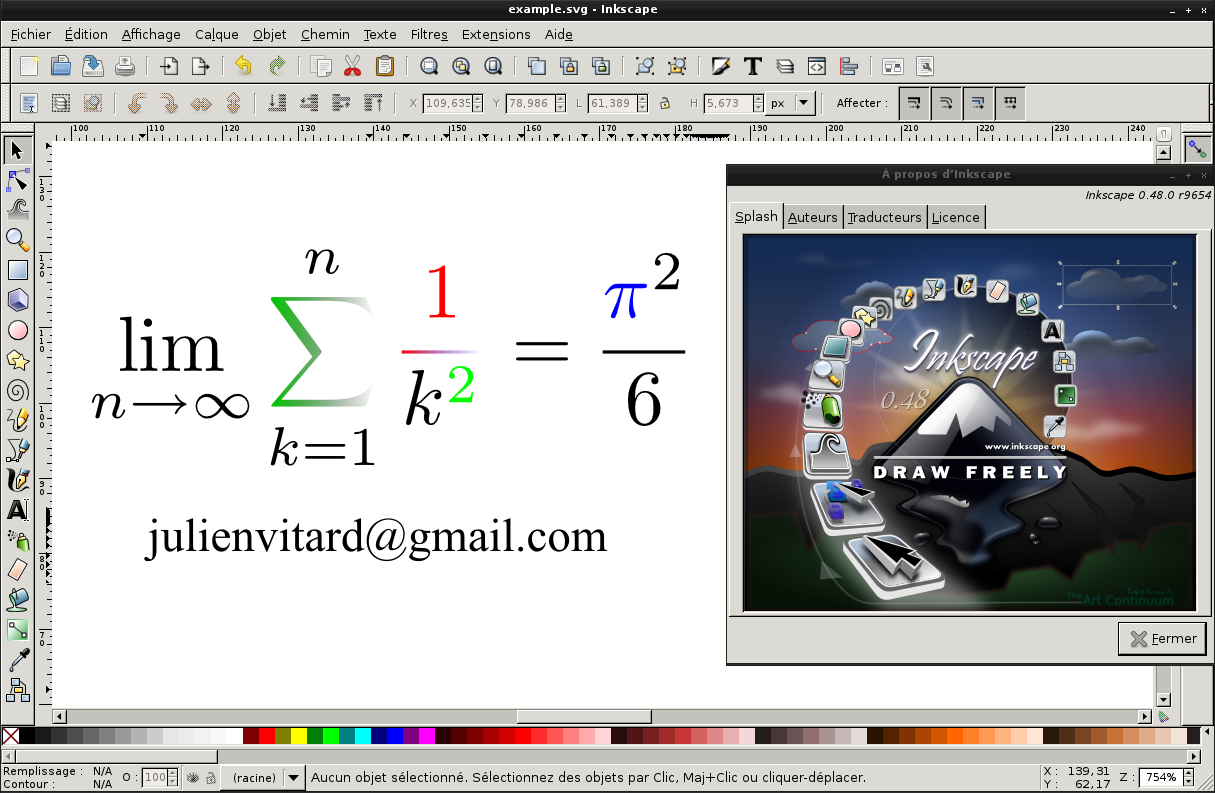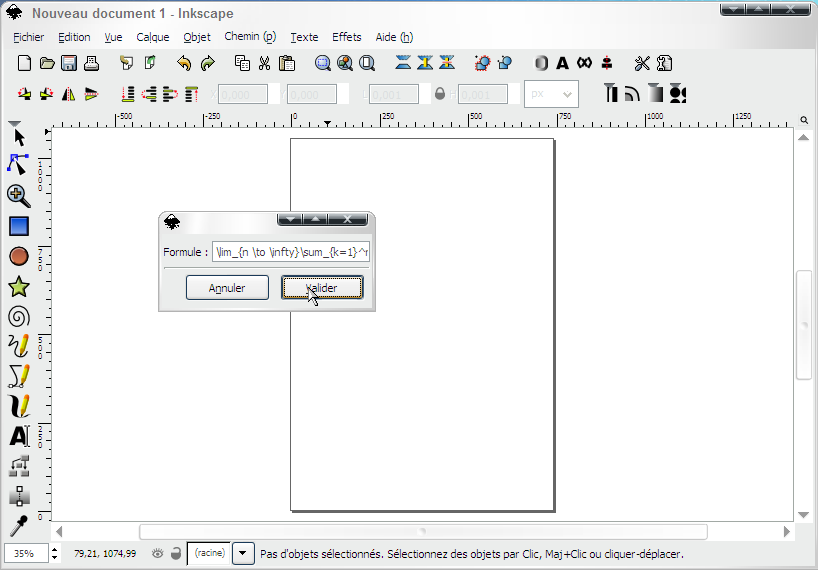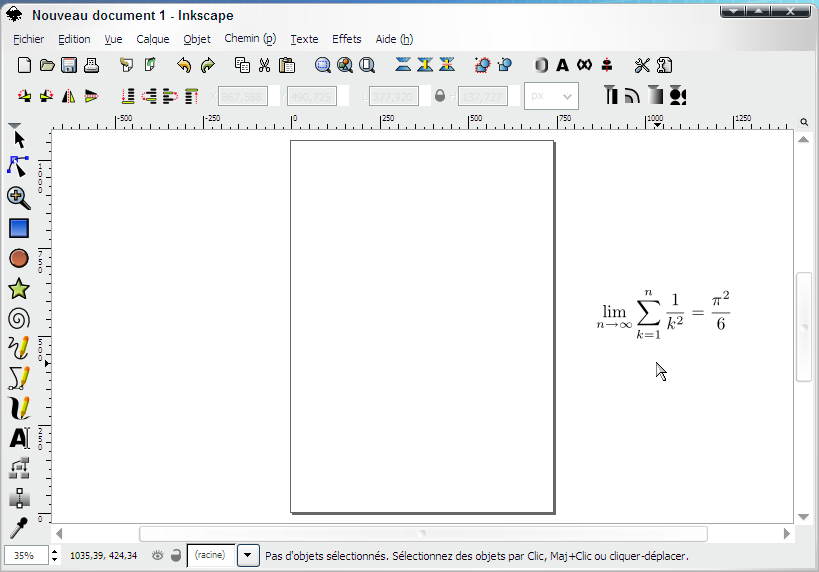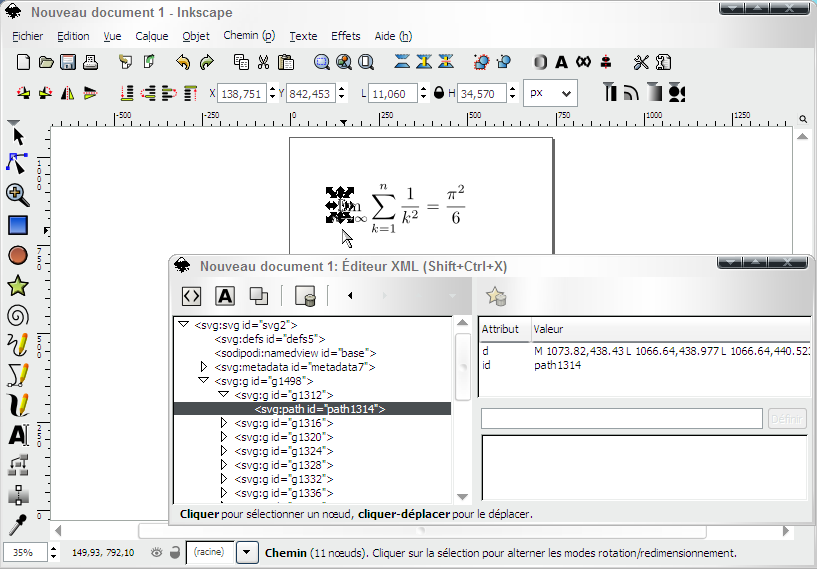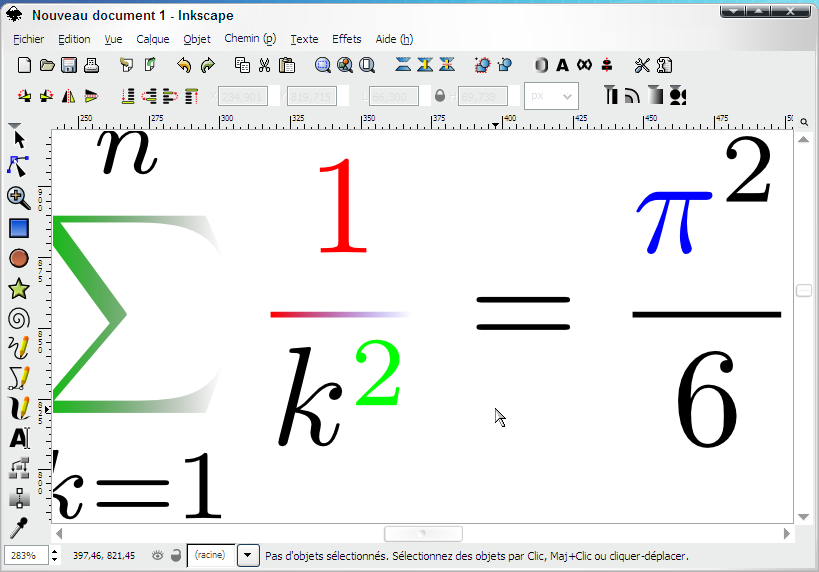Contents
What's EqTeXSVG ?
EqTeXSVG is an extension for Inkscape used to convert an inline LATEX equation into SVG path using Python.
License: GNU General Public License (GPL)
Downloads
Grab the EqTeXSVG zip file (master ) or fetch the sources from Github
$ git clone https://github.com/julienvitard/eqtexsvg.git
Installation
The zip archive contains at least two files:
- eqtexsvg.inx used by Inkscape to describe the extension
- eqtexsvg.py is the python script converting inline equation into SVG path
You need to replace existing files:
On Windows, in the following directory:
C:\Program Files\Inkscape\share\extensions\
On Unix, in the following directory:
/usr/share/inkscape/extensions/
Directories containing your softwares may depend on your configuration.
Using EqTeXSVG
An example of LATEX equation:
\lim_{n \to \infty}\sum_{k=1}^n \frac{1}{k^2}= \frac{\pi^2}{6}
The result is shown here : [SVG]
Bugs
Probably plenty, but EqTeXSVG should work on different platforms:
 Windows
Windows Ubuntu
Ubuntu Gentoo
Gentoo Debian
Debian FreeBSD
FreeBSD Archlinux
Archlinux
- Note:
- An option was added in order to log potential errors ("Debug information" checkbox).
Support
EqTeXSVG is an open source script. But if you modify it, just send me the new version of the script to archive it, and to appear in Acknowledgements part ;-)
For bug reports, feature requests, discussion forums, mailling lists, or any other matter related to the development of this piece of software, please use the Email.
Do not forget to join the log file which precises your configuration, OS, versions of softwares you use and some other used parameters.
Acknowledgements
Thanks to all EqTeXSVG's users.
Here are some people who helped this project in one way or another, and in fair and strict alphabetic order:
- Daniel Aurich
- Florian Becker
- Rodolphe Boisgard
- Pierre Dangauthier
- Kotya Karapetyan
- Devin Kennedy
- Claude Lacoursière
- Rok Potocnik
- Aaron Spike
- Alexander Weisse
- …
Thanks to you all.
